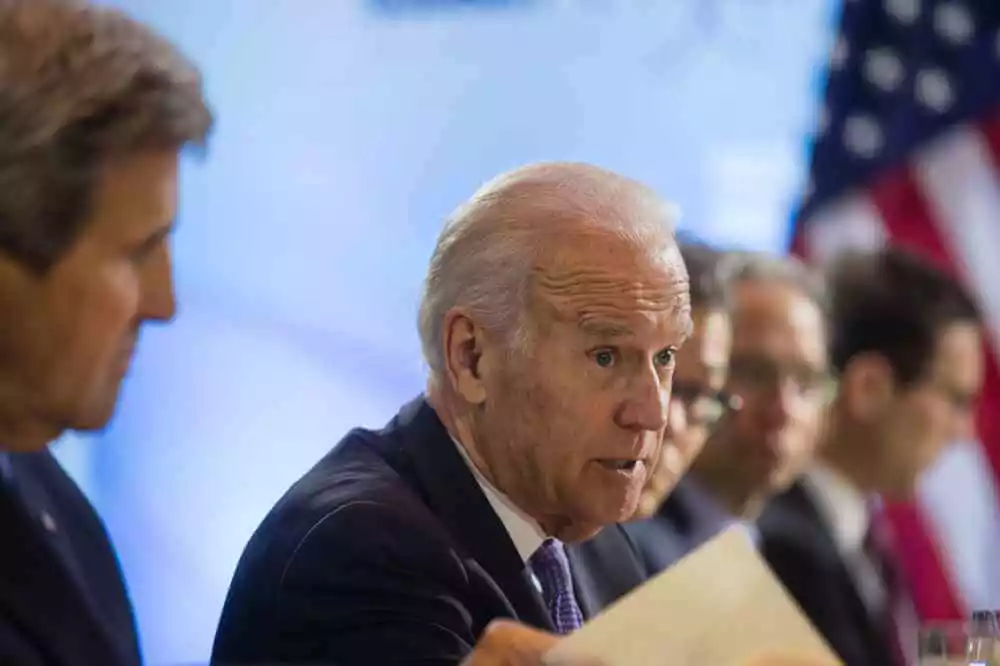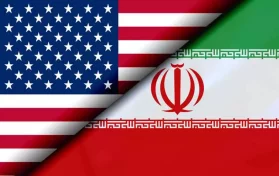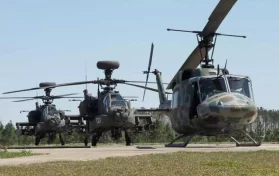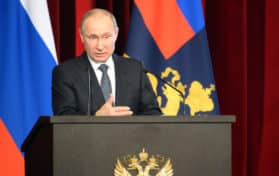
President Joe Biden is set to attend a special NATO gathering in Brussels, Belgium on Wednesday, where he is expected to announce new sanctions against Russia. Biden will address the European Council, where he is expected to detail efforts to enforce the sanctions already in place as well as incorporate newly expected sanctions. White House National Security Adviser Jake Sullivan said regarding the president’s trip: “He will join our partners in imposing further sanctions on Russia and tightening the existing sanctions to crack down on evasion and to ensure robust enforcement.” However, Sullivan demurred to detail what new sanctions might be.
The White House has announced that President Biden will travel to both Belgium and Poland, but any other stops on the European trip are not known to the public. Biden is not expected to visit Ukraine nor to meet with Ukrainian President Volodymyr Zelenskyy.
Biden is expected to press European allies for continued unity and support of the Ukraine; the Polish president is looking to meet with President Biden personally. It is expected that he will implore President Biden for assistance with humanitarian aid. At least two million Ukrainians have fled to Poland since Russia invaded Ukraine on February 24.
Polish President Andrzej Duda is also expected to discuss the possibility of a beefed up NATO presence in his country. At present, there are 10,000 American troops in Poland. On Tuesday, a senior defense official revealed that Secretary of Defense Lloyd Austin is considering sending more U.S. troops to the NATO effort.
President Duda is not the only Eastern European leader to ask for more NATO troops; Latvia, Romania, Estonia, and Lithuania have all lobbied for a stepped-up NATO military presence in their respective countries.
Sullivan shared that President Biden does plan to discuss “longer term adjustments to NATO force posture on the eastern flank.” At the same time, President Biden has been adamant regarding sending American troops into Ukraine as he feels Russian President Vladimir Putin could see this as an act of aggression; he has said the same about placing a no-fly zone over Ukraine.
Last week, Secretary of Defense Lloyd Austin meet with his Eastern European counterparts in regards to the defenses that should be set up from Estonia to Latvia to Poland and Romania. These individuals are looking to set up the defenses of these countries, not only so that Putin would be deterred from invading not only NATO countries during the Russia-Ukraine conflict, but also for up to ten years after.
Although NATO is meeting to discuss the conflict in Ukraine in Belgium, Russian Foreign Minister Sergei Lavrov said publicly that “if NATO sends peacekeepers into Ukraine amid Russia’s invasion, that will lead to a direct military clash between the Russian forces and the alliance.”
Early Wednesday morning, Lavrov told the Russian state-news agency TASS that sending even NATO peacekeepers “would lead to a direct clash between the Armed Forces of the Russian Federation and the alliance.”
President Putin has said since he ordered a “special military operation” into Ukraine that any assistance to Ukraine by NATO or Western allies would be seen as an act of aggression toward Russia. However, President Biden has taken the advice of the members of Congress as well as the will of the bulk of the American people into account when preparing to secure aid of various types for the embattled Ukrainian people.
The U.S. Ambassador to the United Nations Linda Thomas-Greenfield said publicly that calls for the United States to take part in any peacekeeping operations inside Ukraine’s borders would go unheeded: “The president has been very clear that we will not put American troops on the ground in Ukraine.”
While Thomas-Greenfield and other members of the Biden Administration have said multiple times that the country does not intend to enter into war with Russia, last week, when President Volodymyr Zelenskyy addressed Congress, he inferred that the world is on the cusp of a third world war.





